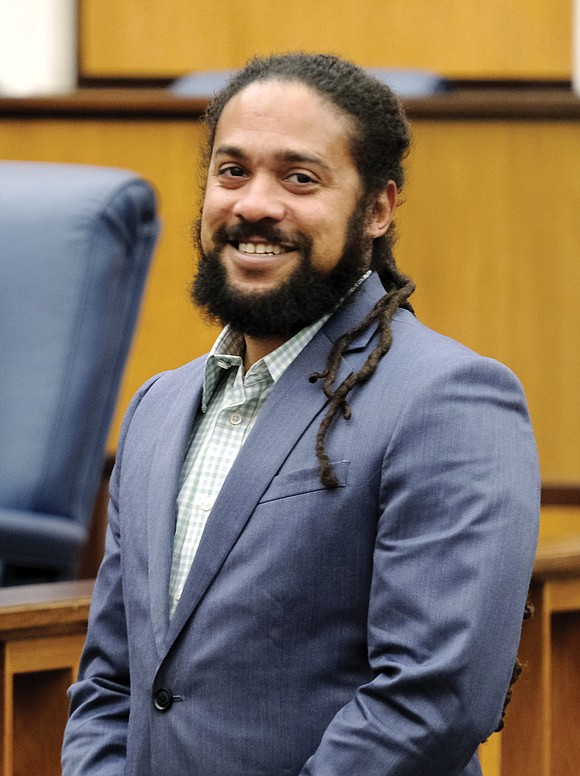City Council approves Salvation Army headquarters move; honors former park superintendent
Jeremy M. Lazarus | 1/31/2020, 6 a.m.

The Salvation Army will be able to move its headquarters and shelter from Downtown to 1900 Chamberlayne Ave., next to a Wells Fargo bank branch.
By an 8-0 vote with one abstention, Richmond City Council cleared the Salvation Army’s controversial move to an office-warehouse that was the former home of Eternal Church. The vote came despite strong opposition from nearby businesses, though not the bank.
At the meeting, the council also overhauled its real estate tax abatement program; cleared the way for a private group to raise money to install a Monument Avenue statue honoring the 14 black soldiers awarded the Medal of Honor in a Civil War battle; and presented a 15-year pin to City Council Vice President Chris A. Hilbert, 3rd District, who formally an- nounced his plans not to seek re-election in November.
The Salvation Army, a Christian organization that has operated in Richmond for more than 130 years, filed an application last year to move to the new headquarters that offers four times the space in Downtown, where it now operates regional offices and a 55-bed shelter for homeless men, women and families.
The new location, which provides 39,000 square feet of usable space, will have offices, programming and an expanded shelter of nearly 100 beds.
The lone abstention came from Mr. Hilbert, who represents the Chamberlayne Avenue area. After initially opposing the move, Mr. Hilbert announced earlier this month that he would not vote on the proposal because his wife briefly worked for the Salvation Army prior to his taking office in 2005, which, he said, presented a potential conflict.
“I wish (the Salvation Army) well,” he said after the vote.
The 9-0 vote on the tax abatement program will revise a city program begun more than 25 years ago to use the property tax to encourage individuals and companies to improve residential and commercial property that is at least 20 years old.
Since 2006, the rebate has saved inves- tors more than $200 million, primarily on apartment redevelopment, but also has reduced revenue for the city by an average of $20 million a year.
Instead of allowing any aging property to qualify, the revised program that will take effect July 1 will be available only for residential property in which 30 percent of the apartments, condos or homes provide reduced rent or mortgages for people making 80 percent or less than the Richmond regional median income, now $83,000 a year.
For an individual, that would be a maximum of $48,400 a year, or $66,400 annually for a family of four.
The revised program also requires an- nual applications from qualifying projects, the ordinance states, with proof that the affordable units continue to be offered.
The current program grants qualifying properties 10 years of reduced taxes, with owners paying the property tax on the assessed value prior to improvement for seven years and then an increased percentage over the next three years.
The new program would allow those incorporating affordable units into their projects up to 15 years of reduced real estate tax payments.
Separately, the council approved Councilwoman Kim B. Gray’s resolution asking for $5,000 to be provided to a foundation spearheading fundraising for the statue onoring the 14 African-American soldiers in the Union victory in the 1864 Battle of New Market Heights in Henrico County.
Viola O. Baskerville, a former City Council member and former state secretary of administration, is leading the effort to raise $3 million or more for the statue. No specific site has been determined, Ms. Gray said.
In other business, the council approved the James River Park Master Plan after honoring the park’s former superintendent, Nathan Burrell, who has been appointed by Gov. Ralph S. Northam as deputy director of the state Department of Conservation and Recreation.
The council also accepted $52,000 in state grants to improve services to youths in juvenile detention and agreed to provide a 4 percent discount for merchants collecting cigarette taxes to help them cover the costs they are incurring.
The council also reformed the licensing program for dogs and cats and stiffened penalties for those failing to pay the $15 annual license fee for pets.







